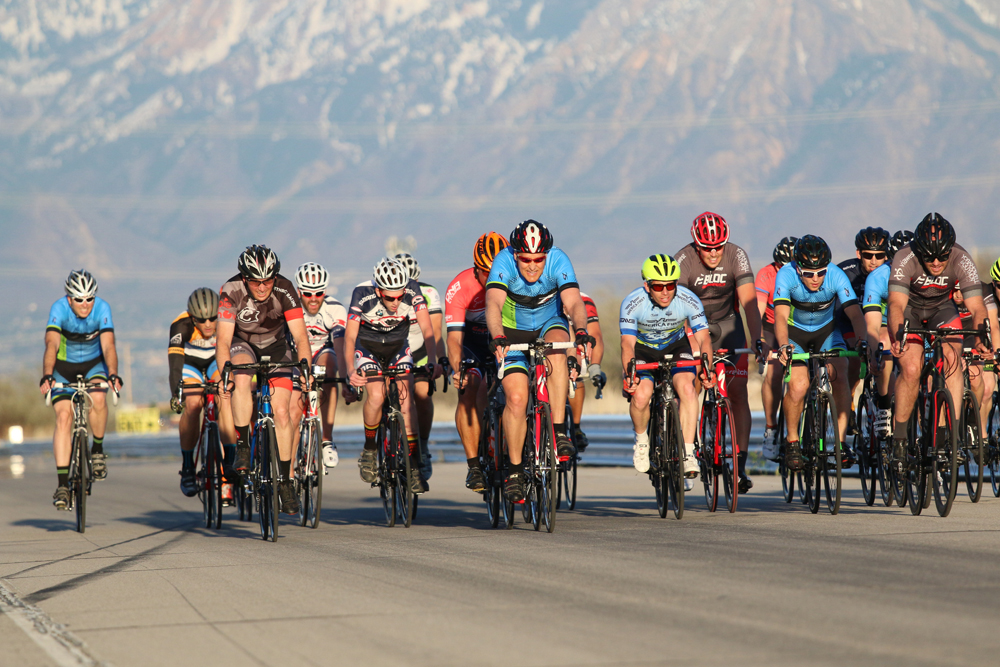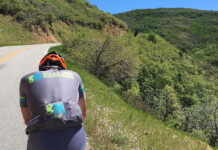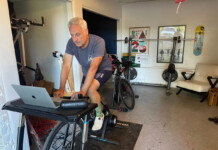By Heather Nielson — In part 1 of “what to expect in your first season” of serious riding in the April 2016 issue of Cycling West / Cycling Utah, I went over the basic logistics of competing and participating in organized events. If you don’t plan for contingencies, they can cost you that big win or an enjoyable day! In this second part, I go over some deeper, more mental, and physical aspects of competition.

Expect to ‘lose’
Ok, I admit this is a negative headline, but I want to get across the reality of endurance sports competition. Whether you’re a runner, triathlete, mountain biker, recreational/century/gran fondo cyclist or bike racer, the odds of winning are not 50/50 like in a football or basketball game. I would strongly encourage you before you participate in your event, to write down some very specific goals. It can be one or it can be several (though I suggest limiting your list to three or less).
There are so many things to learn every time you compete that if you are only focused on winning and not on being present in every moment, you will miss out on so many opportunities to get better as an athlete and vastly improve your chances of success in your next competition, or even one you’re in the process of competing in.
For example: let’s say you’re doing your first event, and you know that you need to work on your group awareness to better understand how to navigate among your competitors – who to pay attention to, when to respond to a move, when to use features on the course to your advantage, etc. Use that first race to practice moving smoothly around and up in the group, staying safe, communicating to those around you, adjusting your position smoothly instead of reacting when there’s a crash or a sudden move around you, getting comfortable competing closely next to and behind other riders, and pacing yourself during long efforts. Honestly, these skills take years to master, so don’t get discouraged if you’re not the smoothest, most efficient and tactical athlete in your first event! I’m not saying don’t try to win; of course you want to win! Just remember, if you’re doing all of those things right, you’re setting yourself up for a better chance to succeed than if you only focused on winning in the end. ‘Be’ in every moment of the race.
Expect to adjust your goals
The previous subject leads perfectly into this one: adjusting your goals. Learn to adjust your goals all the time; not just after an event! If you are truly living in the moment, reading the other athletes around you, their strengths and weaknesses, dealing with changing weather conditions, accidents, and changes in terrain, you should be constantly adjusting your goal(s). You need to always be asking yourself: “Am I in the position I need to be in right now to reach my goal?” If you need to conserve energy, are you taking a break when you should be, or are you constantly reacting to everyone around you, thereby using more energy than necessary to get a ‘result’? How do you want to be positioned before and in the middle of key moments on the course, given your strengths and weaknesses versus those of your competitors? Utilize your strengths and use others’ weaknesses to your advantage.
Following your event, I would still recomment a mental debriefing of some sort. Refer back to your written goals and assess honestly whether you reached them or not, what you would do differently, what you would change, and what you need to do for next time. Writing things down is a very powerful yet vastly underutilized tool in helping to ‘re-wire’ neural pathways in learning, development and behavior. Do more than just visualize or talk about things, and do a written review after you’ve spoken to your coach, team director and/or team captain. Do it within a few days after your event, but not necessarily right away, in order to allow for perspective, and to allow inflamed emotions to subside. Then leave it…in the past. Onward.
Expect to be nervous
I remember my first season of bike racing; I would be nervous the entire week before an event. Now I’m only nervous the hour before, and I try to keep that nervousness at the optimum level of intensity (yes there is such a thing as optimal nervousnss). You don’t want to be too relaxed or overconfident, and you don’t want to be so nervous that your whole body is shaking on the start line.
Looking back, I believe that the main reason athletes get nervous is because of all the unknowns. I would suggest spending some time the week(s) before your event preparing yourself for what to expect. The more you know about what to expect, the less nervous you’ll be, the more realistic you’ll be with your goals and expectations, and the less reactive you’ll be in the middle of the race. That way, you can make decisions clearly and at the right moments, and quite frankly the more you’ll actually enjoy participating!
Research the details of an event: time, distance, location, number of participants, level of competition, course profile, when and where on the course lie the main ‘features,’ such as climbs, turns, descents, etc. Start thinking about how your strengths and weaknesses as an athlete match up to the course and the other competitors, as well as how you need to compete in order to give yourself the best chance at getting a ‘result.’ The ‘result’ you want is, again, up to you, and will be a goal you need to set beforehand.
I hope both these articles help you stay positive and focused during your first season. And remember, there is always something to learn, always someone faster, and always another goal to reach. Learn to enjoy the journey without getting obsessed with the ‘end,’ because competition in sports and life doesn’t end after the finish line; it ends when you quit.







